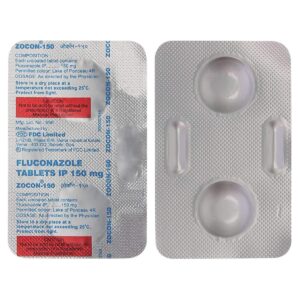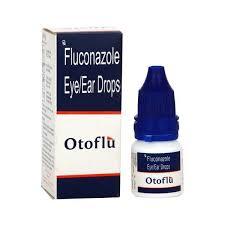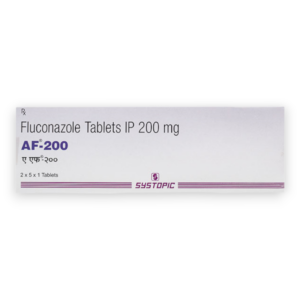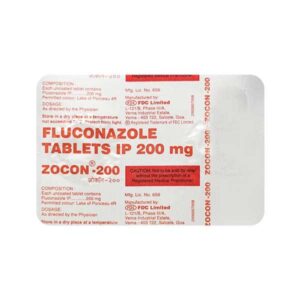FLUCONAZOLE
FLUCONAZOLE: Fluconazole is an antifungal medication that is used to treat various types of fungal infections. It belongs to the class of drugs known as triazole antifungals.
Fluconazole works by inhibiting the growth of fungal cells. It does this by blocking the synthesis of ergosterol, an essential component of the fungal cell membrane. Without ergosterol, the cell membrane becomes weak and allows for leakage of cellular contents, ultimately leading to the death of the fungus.
This drug is commonly used to treat infections caused by Candida species, such as vaginal yeast infections, oral thrush, and esophageal candidiasis. It is also effective against certain types of systemic fungal infections, such as cryptococcal meningitis and candidemia. In addition, fluconazole can be used as a preventive measure in individuals with high risk of developing fungal infections, such as patients with weakened immune systems.
The dose of fluconazole depends on the type and severity of the fungal infection being treated. For most vaginal yeast infections, a single 150 mg dose is sufficient. In other types of infections, the dosage may be higher and taken daily for a longer period, ranging from a few days to several weeks.
Like any medication, fluconazole may cause certain side effects. Common side effects include nausea, headache, abdominal pain, diarrhea, and dizziness. Some individuals may experience skin reactions, such as rash or itching. In rare cases, more serious side effects like liver damage, severe allergic reactions, or changes in heart rhythm may occur. It is important to seek medical attention if any severe side effects are experienced.
Fluconazole can interact with other medications, so it is crucial to inform the healthcare provider about any other drugs being taken. It may also interact with certain medical conditions, such as liver or kidney disease, so it is important to disclose any relevant medical history.
In summary, fluconazole is an antifungal drug used to treat various fungal infections. Its mechanism of action involves inhibiting fungal cell growth by blocking the synthesis of ergosterol. The dose and duration of treatment depend on the specific infection being treated. While generally well-tolerated, fluconazole may cause side effects, and it is important to discuss any concerns or potential interactions with a healthcare professional.
















